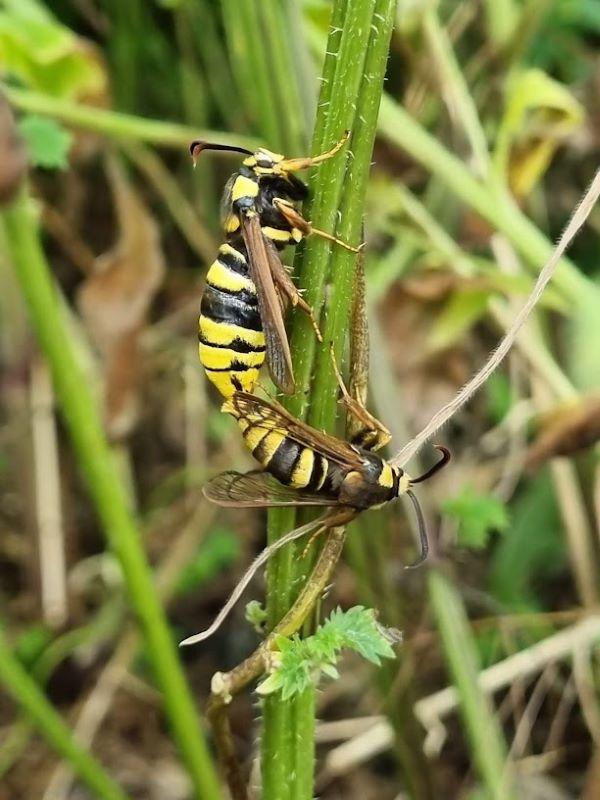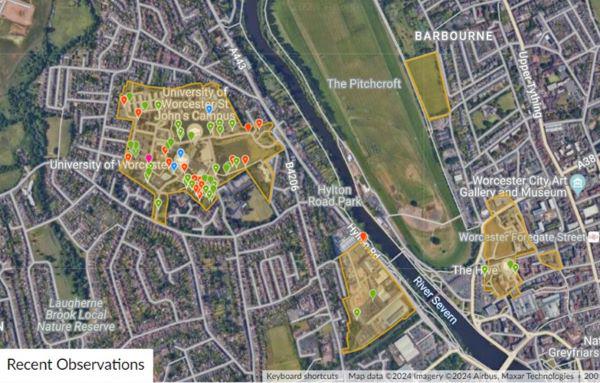The University aims to: ‘Enhance biodiversity and incorporate biodiversity in environmental management, creating new opportunities for wildlife on campus wherever possible’ - University of Worcester Sustainability Policy.
Biodiversity Strategy

The Biodiversity Strategy outlines how the University intends to meet its Policy commitment for biodiversity on its campuses. We have already made great progress in implementing this Policy commitment.
A Strategic Biodiversity Steering Group meets up to four times a year to drive forward action to manage and enhance biodiversity at the University. This includes staff from the Sustainability Department, Academic Departments, Grounds, students from the Nature Society and external organisations.
Biodiversity targets
Biodiversity SMART targets
Annual quantitative and qualitative targets are set and the sustainability budget identifies specific projects to be achieved throughout the year. Please see our Sustainability Targets 2024-2025.
Biodiversity Action Plan
The University’s Biodiversity Action Plan (BAP) implements the commitments set out in this Biodiversity Strategy as part of the University’s ISO14001:2015 Environmental Management System.
Nature Positive
We have made a pledge to be Nature Positive. This is a commitment halting and reversing nature loss so that species and ecosystems start to recover. It means restoring species and ecosystems that have been harmed by the impacts of a university and its activities and enhancing the university’s positive impacts on nature. It refers to everything we do, from our teaching and research work to the operations and supply chains that keep us running. It requires collaboration between many parts of the university, such as grounds and estates teams, catering and gardening staff, academic experts, students and our sustainability team.
Read our annual report on Biodiversity to find out what we achieved in 2023-2024.
Sustainable Environments Research Group (SERG)
The Sustainable Environments Research Group (SERG) was launched in 2020 to bring together colleagues from across the University to deliver excellent research that aligns with the theme of “Sustainable Futures” identified in the University’s Research & Knowledge Exchange Strategy 2020-25, as an Area of Challenge.

iNaturalist Biodiversity Project
We are excited to announce the launch of our iNaturalist Biodiversity Project. This initiative encourages students, staff, and the community to document the diverse species found on and around our campuses using the iNaturalist app. By participating, you can contribute to a living map of our local biodiversity, helping us to better understand and protect the natural world around us.
Participants can easily upload photos of plants, animals, and fungi, which will then be identified and mapped. This project not only supports our commitment to enhancing biodiversity but also provides a valuable educational resource for our academic and research efforts.
Join us in exploring and preserving our campus biodiversity. Download the iNaturalist app and start contributing today!
Student projects
The annual report gives more detail on current nature based student projects but if you have an idea and want to get involved please get in touch. For example, in getting involved with the initiative of how to be hedgehog friendly.
Biodiversity has also been a central consideration in the establishing the grounds of The Hive Library, History and Customer Centre for students and the public, established in partnership with Worcestershire County Council.
